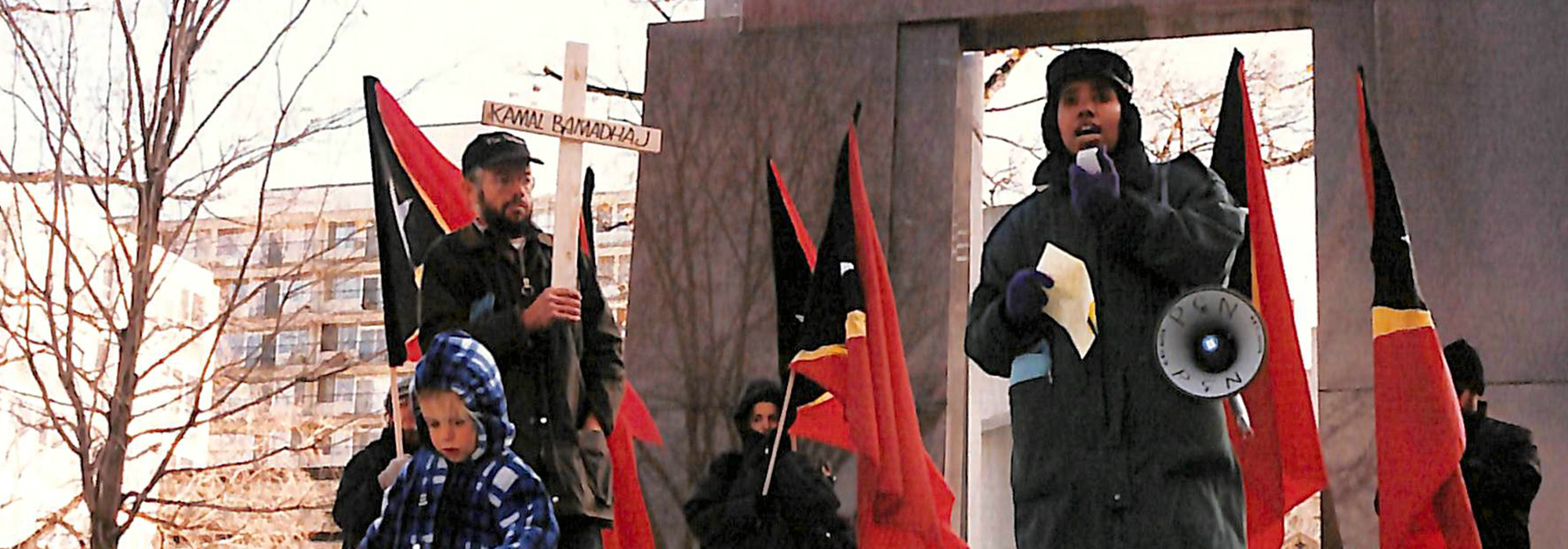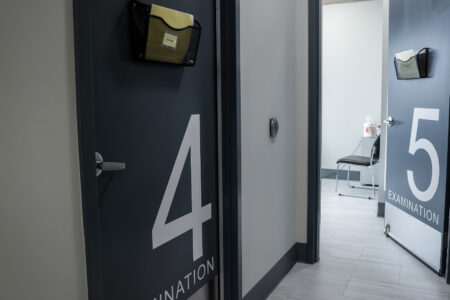
Canada’s international human rights policy opens with a lie: “Canada has been a consistently strong voice for the protection of human rights and the advancement of democratic values. This started with our central role in the drafting of the Universal Declaration of Human Rights in 1947-1948 to our work at the United Nations today.” Isn’t it time for official Canada to finally transform this founding lie about human rights into something that is true?
As historians have proven, the Canadian government did not support the Universal Declaration of Human Rights (UDHR). In fact, Canadian officials resisted the idea and content of the Declaration, and they worked in typically quiet Canadian opposition to it.
At the first vote in 1948, Canada was among the tiny minority that withheld support for the Declaration. While the United States campaigned hard for the UDHR, a few skeptics resisted, including the Soviet bloc, Saudi Arabia, South Africa – and Canada. An embarrassed External Affairs Minister Lester B. Pearson persuaded his cabinet colleagues to change their vote, and Canada came around in the final General Assembly vote, but still dragged its feet.
Canada’s role in developing the Declaration did not come from government. McGill law professor John Humphrey, then-head of the UN Human Rights Division, helped draft the UDHR. Humphrey pronounced himself “ashamed” of Canada’s actions in resisting it.
What is most interesting about the myth of Canada’s “central role” is how often it is uncritically repeated. Most recently, the Canadian Council for International Co-operation’s Nicolas Moyer repeated the false history in a Policy Options article, calling Canada “a key player in creating the Universal Declaration of Human Rights in 1947.”
That just ain’t so.
Ancient history? Perhaps. But there is a larger lie in Canada’s international human rights policy statement: its claim that “Canada has been a consistently strong voice for the protection of human rights and the advancement of democratic values.”
Certainly there have been moments when the reality of government policy has risen to those dizzying rhetorical heights. But any sober review of the record reveals Canada has been, at best, a sporadic – rather than consistent – voice for human rights. At worst, it has often undermined rights. Advocacy of democratic values has played a poor second to promoting Canadian trade and investment.
I make this case in a new book that reviews Canadian policy towards one of the 20th century’s nastier human-rights tragedies: the Indonesian military occupation of Timor-Leste (East Timor) from 1975 to 1999. Here was a small country invaded by a larger one; a democracy invaded by a military regime – with the frequent complicity of the Government of Canada.
Timor-Leste declared independence in November 1975. Days later, the Indonesian army invaded. At least 100,000 people – perhaps twice that number – died due to warfare, human-rights violations, and famine caused by the occupation. That represented one-sixth to one-quarter of the country’s population, a near-genocide on the scale of the Khmer Rouge genocide in Cambodia, which occurred at about the same time.
Under then-prime minister Pierre Trudeau, Canada consented to the invasion of East Timor. It lamented human-rights violations but took no action. Instead, Indonesia became a leading destination for Canadian aid. In Pierre Trudeau’s words, “on balance we decided that stability of the region should be the foremost concern and thus had supported Indonesia.” Human rights took a back seat.
Canada’s courtship of General Suharto’s dictatorship in Indonesia accelerated under Brian Mulroney. Indonesia became Canada’s second-largest aid recipient. Despite an active campaign by Amnesty International and others, then-external affairs minister Joe Clark denied the killings, pronouncing himself “satisfied that there are not massive violations of human rights” in East Timor.
Clark’s successor, Barbara McDougall, took a tougher line, freezing aid after a massacre in East Timor. But Canadian sanctions were hesitant and – like the Mulroney government’s limited sanctions after China’s Tiananmen Square massacre – carefully calibrated to avoid damage to Canadian trade interests. Despite the aid freeze, two-way trade between Canada and Indonesia soared by almost 50 percent the following year.
That trend accelerated under Jean Chrétien’s Liberals, who consistently prioritized trade over human rights. Chrétien’s government identified Indonesia as a priority trade market, and made a major pitch to sell it weapons. Arms export permits peaked at a startling $362 million in 1995. The floodgates for military exports closed only after the Timorese voted for independence in a UN-sponsored referendum in 1999.
Canadian arms sales continue to flow to human-rights violators today. Once, Canada barred military exports to any country that violated human rights, or where there was even a potential risk that Canadian weapons might be used against civilian populations. Today, arms exports flow much more freely.
Saudi Arabia, Canada’s top non-US market, is an example. Despite credible reports that Canadian-made weapons have been used, and despite the Saudi human rights record – including numbering among the world’s worst violators of women’s rights – military exports continue at an alarming clip. It’s hard to dispute that Canada now sells military goods to human rights violators much more readily than it once did.
Does the mythmaking matter? In the sense that it allows Canadians to pretend we are human rights advocates, a claim at direct variance from the reality of Canadian policy, yes. In the 1990s, Canada stopped co-sponsoring UN resolutions promoting human rights in China. Instead, it turned to a “bilateral human-rights dialogue” held behind closed doors, thus helping China overturn elements of the international human rights regime. Then-prime minister Stephen Harper hectored China, then pirouetted and sent cabinet ministers to virtually kowtow to China. The result is a China policy in tatters, and a government impotent in its efforts to free Canadians held unjustly in Chinese prisons.
What we need is a human rights policy that abandons self-satisfied pablum about the world needing “more Canada,” and prioritizes reinvestment in diplomacy and aid. The present government declares it has a feminist aid policy, but in reality such a policy needs proper development funding. (Prime Minister Justin Trudeau’s government gives half the aid his father gave when measured as a percentage of gross national income.)
Few things harm rights-promotion more than smug sermons. Canada’s government must listen as well as preach. For example, we have much to learn about relations with Indigenous Peoples. Ottawa should heed the message of the UN Committee on the Elimination of Racial Discrimination, which points out that natural resource development is trumping the UN Declaration on the Rights of Indigenous Peoples.
A consistent human-rights strategy could mean restoring the old emphasis on strengthening civil society overseas, which once garnered Canada considerable respect. Today, Canadian mining companies are often complicit in human rights violations. Canada should regulate the activities of Canadian-based companies overseas. The current government’s efforts in that direction are so weak that its NGO collaborators walked out of the process rather than be used as window dressing.
At the government level, Canada’s human rights record is spotty. At the civil society level, individual Canadians have done impressive work. Official Canada needs to back that work already being done by unofficial Canada if we are to transform the founding lie about human rights into something that is true.
Photo: Timorese human-rights activist Bella Galhos speaking at the Human Rights Memorial in Ottawa in 1995. Credit: East Timor Alert Network
Do you have something to say about the article you just read? Be part of the Policy Options discussion, and send in your own submission. Here is a link on how to do it. | Souhaitez-vous réagir à cet article ? Joignez-vous aux débats d’Options politiques et soumettez-nous votre texte en suivant ces directives.









